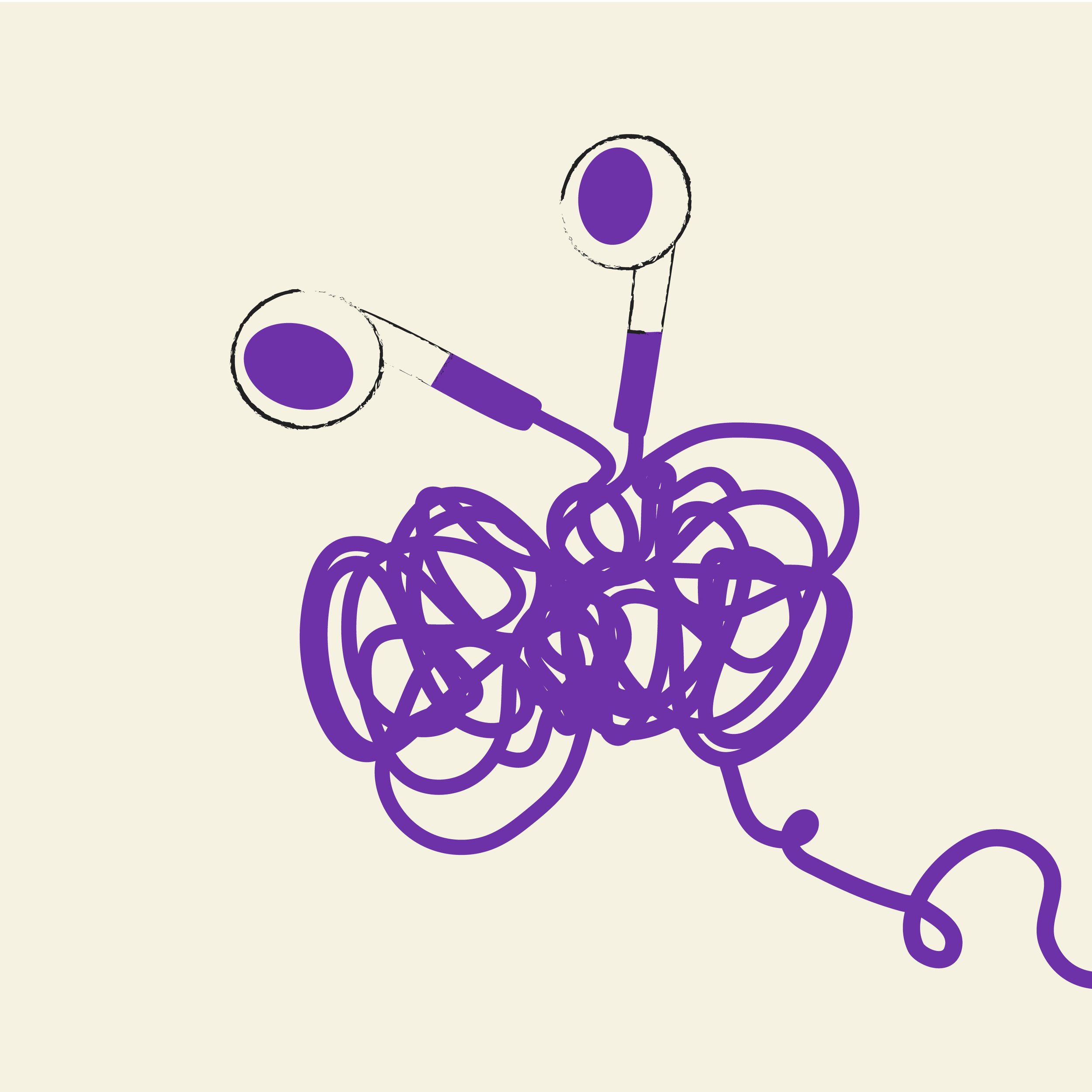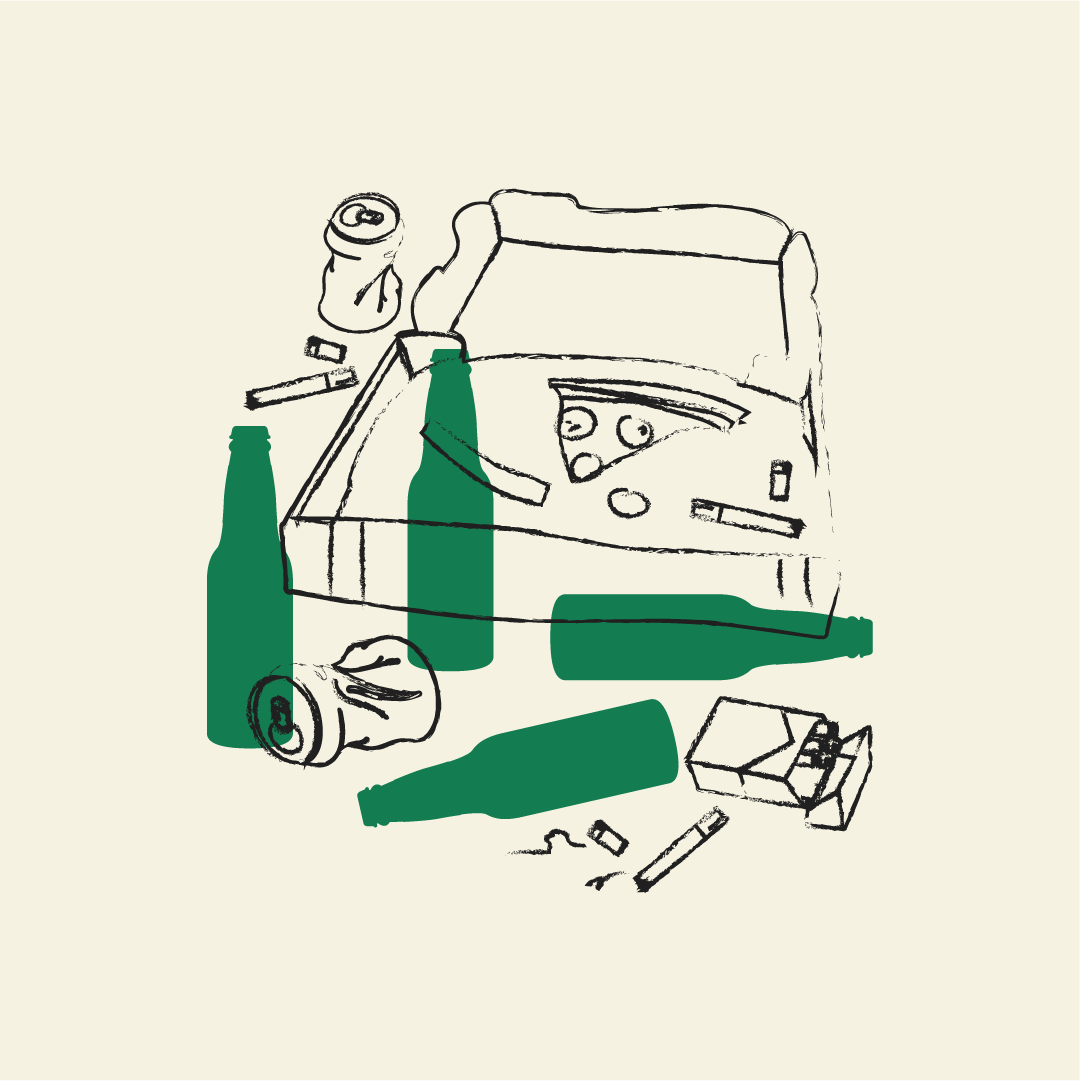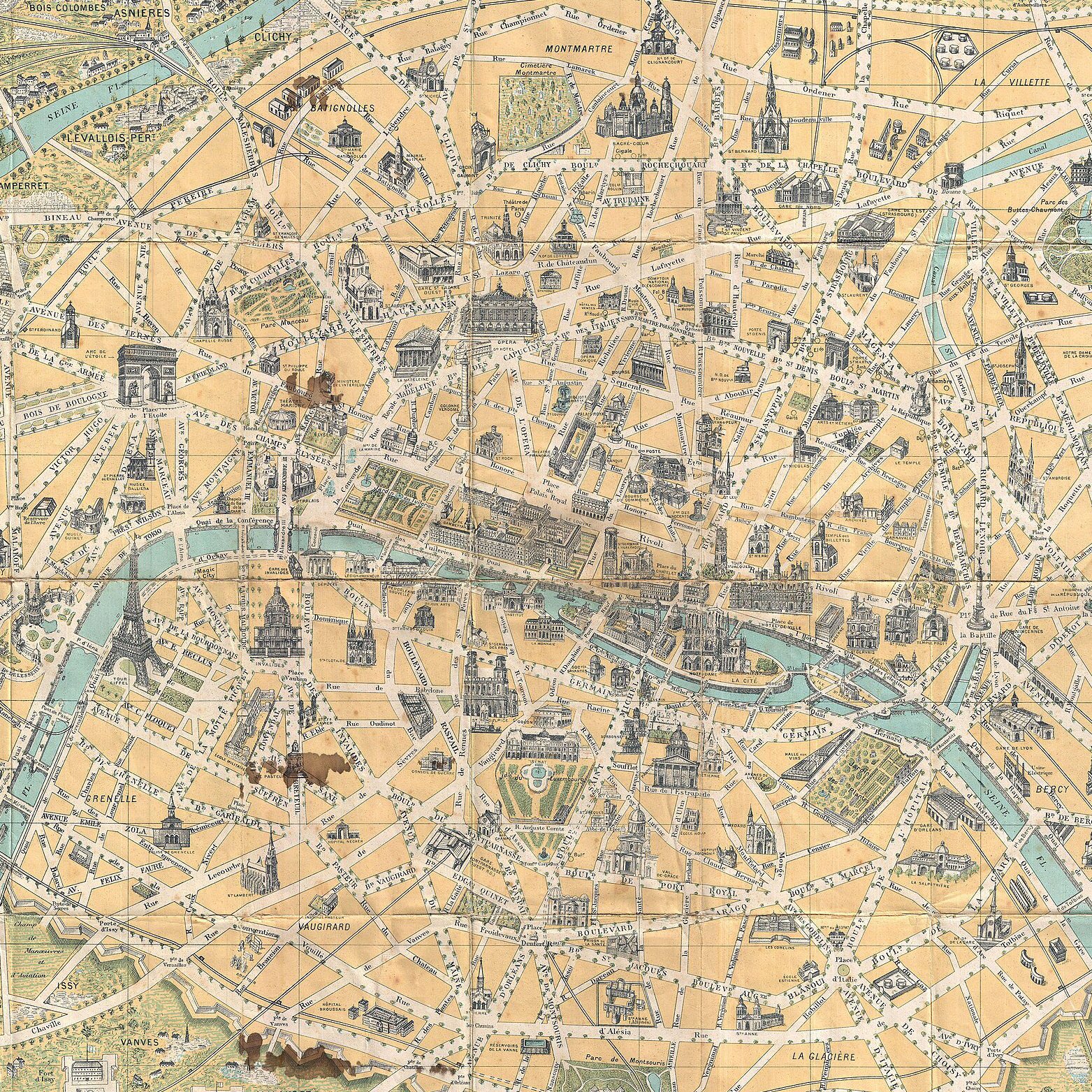Paris
“With every step my target seemed even more energetic, while I had to thread my way through a host of towering Northern European tourists who stopped every few minutes to aim their cameras.”
MAY 29, 2024
A seven-story building, a grey gate, a prison’s level of security.
My watch read fifteen hundred. It was already an hour since Paul Polotsky disappeared behind the grey gates. I didn’t know which apartment he was visiting, whom he was seeing, or how long he would stay. All I could do was to follow my target.
Today Paul Polotsky hadn’t followed his usual route to his reading bench in the park. After class, from the campus gate, he suddenly headed to the Métro station at a surprising speed. I hurried after him. With every step my target seemed even more energetic, while I had to thread my way through a host of towering Northern European tourists who stopped every few minutes to aim their cameras. My heart drumming, it was like this was an entirely different person I was dealing with. Polotsky seemed to have the whole course laid out in his mind. He went swiftly down to the Métro, switched at every few stops, and passed down long, forking corridors without pausing to consult a map. I had to run most of the way to breathlessly keep up with him. At the end of Line 4, he got out the moment the train stopped and glided into a small corridor that led to another, even smaller, emerging onto the street in under a minute, and then walked intently, even faster, as if his destination was imminent.
So I was surprised when he suddenly slowed down as the road led up onto an iron bridge. Not a soul in sight. Cold sweat dampened my back in the thirty-nine-degree heat. If Polotsky only turned his head, he would discover his stalker right at his heels. Fortunately, he only dropped his speed and gazed into the distance, where tall buildings stood cracked in the summer heat. Down below, the multilane highway was busy. A giant truck bearing the logo of a Chinese supermarket chain swerved and pulled to the curb. Near the far end of the bridge, Polotsky stopped and put his briefcase and overcoat on the railing. I was expecting a long wait, but my target suddenly stooped and took out a pair of sunglasses to replace his large reading glasses, smoothed his hair, then continued on his way. That night at home, I would check the map and discover that the iron bridge was what separates Paris and the small town of Montrouge. That was the first time I set foot in the southern banlieue.
My next hour flew by, thanks to the door lady. She had arrived in France with her parents fifty years ago, and now, after trying in vain to grab hold of her youngest daughter, she poured her sorrow upon me as I paced outside the gates waiting for Polotsky. She told me in her Thanh Hóa accent how the pet name they gave the girl, our darling the princess of Annam, had planted in the kid’s mind delusions of grandeur. Little did the daughter know that her fine dresses, her ballet lessons, her Vietnamese dulcimer lessons were paid for by her mother’s working hours of janitoring, and after-work hours of bathing and manicuring a dozen elderly tenants, and her father’s days of stir-frying noodles at his main restaurant, nights of frying at his side diner, and weekends of frying at home so that supermarket customers could get their noodles in plastic boxes. Little did she understand why the money they had borrowed from banks and acquaintances went not into a decent apartment, but a convertible Mercedes to take her to school and elsewhere. Each day she longed for the moment she could go out, leaving their narrow room with too faint sunlight and too thick a smell of stir-fried noodles, put on her white silk dress trimmed with pearls and be transformed, sitting in the back seat of the Mercedes, into a princess. At school, at fashion boutiques, at cram school, everybody was mesmerized by her, mistaking her parents for her au pair and chauffeur. Her delusions had grown more entrenched as the years went by, until she was convinced that she had been kidnapped from the palace as an infant by none other than these impostor parents. Earlier this year she had insisted that the three of them take a DNA test.
This very hat helped me to locate them ten minutes later, when they had passed down the street and merged into a crowd waiting for the lights.
“Ridiculous, right?”
I forgot to nod until the door lady mildly slapped my shoulder. I had drunk in every word of that outlandish story, but the moment she asked me the question the grey gates flew open and a gaggle of retired apparatchiks flowed out, some carrying duffel bags, some dragging along suitcases. Two silver minibuses instantly materialized. Happy as larks, the whole delegation got on them, having shaken hands and patted backs and promised to meet again to their hearts’ content. I had to look hard to detect any sign of Polotsky, and only nodded at the door lady when the two silver minibuses had darted away, leaving two puffy clouds of silver smoke. My head nodded but my mind was wondering if perhaps, in the last few confusing minutes, my target had left the building and was now immersed in counting his paces along some endless station corridor. The door lady however paid no heed to the apparatchiks or the minibuses; she had picked up her laments about the youngest daughter who could now never be seen at school nor at home. The girl’s reasoning was: her parents had refused a DNA test because they feared they would be found out.
“Ridiculous, right?”
This time I was frozen mid-nod: the grey gates flew open again, five or six children ran out, and in their wake, finally, loomed the droopy figure of Polotsky, the sunglasses still occupying his nose. Nothing could be seen of his usual listlessness, or the energy of a few hours ago; my target was now holding his briefcase in one hand, his other arm draped around the shoulders of a woman no less droopy, whose dress came down to her heels and whose face was virtually invisible under a wide-brimmed mahogany-colored hat. This very hat helped me to locate them ten minutes later, when they had passed down the street and merged into a crowd waiting for the lights. During those exasperating ten minutes, every time I was about to make a dash for it the door lady would hold me back with a Ridiculous, right? Luckily for me, the princess of Annam herself abruptly appeared. I lowered my head and drove my legs as fast as I could past the girl’s pallid face, and moments later heard shouts behind me. Presumably, her royal highness had again escaped the door lady’s paws.
Shops lined both sides of the street in the town center. Nearby rose a church spire as tiny as a toy. It was the most frantic time of the sales season, and the streets dazzled with legs and smells. Polotsky was no longer walking beside the woman but immediately behind. The two droopy figures were walking and chatting as if they were the only ones around. But I didn’t catch a word, with the distance being too far and the woman’s voice too low, barely more than a whisper, so that Polotsky himself had to keep dipping his ear toward her wide-brimmed hat. His sunglasses nodded as incessantly as his lips moved, both inaudible. I didn’t know if the woman herself caught a word. Then I imagined maybe she was deaf, seeing how she didn’t nod or shake her head. Finally, to distract myself from my aching legs, I imagined a romance à la Stendhal. The long dress, the wide-brimmed hat, the church spire, the sunglasses, the beau and the beauty… it took my mind off my legs for a few minutes.
Whether behind or to the left of them, I maintained a strict distance of one meter and the guise of an ardent window-shopper. But after fifteen minutes of this my patience ran out and I decided to draw nearer, once even stopping right beside my targets now pausing in front of a hat shop. I twisted my neck to see her face in a mirror inside the window, and got an eyeful of reflected sun, but it was worth it to be able to eavesdrop on their conversation:
“Every time I pass this shop I look at this hat. Year after year, it seems to lie there waiting for me on the shelf. I wonder how it’s possible that no one has taken possession of such a beautiful hat.”
“Why didn’t you ever tell me that you’re fond of this hat? What other things are you keeping hidden from me?”
“It is too late now, you see. The hat no longer suits me at my age. And as for the other things, you can no longer do anything about them.”
I was disappointed by those hollow words, not to mention his panting right next to me. The woman seemed to have more to say but walked away to peek in another shop. Polotsky followed her, his head lowered, his breathing still labored. I resumed my one-meter distance. It was not easy to keep near them anyway: anyone who threatened to come between them was thrust away by the droopy Polotsky. This man’s strength seemed to be something to reckon with.
I was a few steps away from him, afraid that my target might collapse any minute.
The street grew more and more crowded. I did a constant dance between sweat-covered bodies and bursting plastic bags. At an artificial flower shop, the woman suddenly turned back. If it weren’t for the wide-brimmed hat I would have had her whole face in my sight. Another conversation began, her voice now less hushed:
“Do you remember the first flowers you gave me?”
“Of course. I knew at first sight that you are a lilac girl.”
“You have never given me red roses.”
“Indeed, I know you don’t like them.”
I sighed. What if my targets’ talk never departed from these inanities. But just as I began to lament a wasted evening, Polotsky stepped up to squeeze the woman’s shoulders, she turned sharply away, moved through the crowd and walked out into the road. A taxi somehow materialized. The rear door opened, she bolted in, she slammed the door, the car sped away.
It was over in a flash. Stunned, I could do nothing but stare. When my senses returned, I turned to the side to see Polotsky looking equally dazed. A young couple were rushing toward us, arms laden with bags upon bags, watching the vanishing exhaust smoke and crying out in frustration. Turned out they’d called a taxi a good half hour ago, and secured this one after a dozen calls only to see it swiped by the woman in a wide-brimmed hat when they were still stepping out of the shop.
Another ten minutes had passed but Polotsky hadn’t shaken off his daze. He stood there, still, in the middle of the pavement, facing the direction the taxi had driven away, his dark sunglasses growing darker on his white face under his white hair. I was a few steps away from him, afraid that my target might collapse any minute, either because of an acute heart attack or the marching crowd all around, the sweat-covered bodies hugging bursting plastic bags. I was still debating whether to run to support him, or to wait and see what would happen if he kept standing there, not unlike a few days ago at that public park, when a tropical rain suddenly came down on Paris.
My parched throat was about to drive me into the nearest convenience store for some bottled water when Polotsky was jolted back to consciousness, shivered, rearranged his coat, fixed his glasses, smoothed his hair, and numbly started walking. I had to silence my now raging thirst and go with him back the way we had come, to the iron bridge, which was now oven-hot and disheveled.
Down below on the highway, the threads of traffic were still woven tight. The giant Chinese supermarket truck had been replaced by a mighty triple convoy from a Bulgarian food company. Just as I’d feared, Polotsky didn’t go straight to the Métro station, but listlessly stepped onto the bridge, listlessly stopped at the same spot as earlier, placed his overcoat and briefcase on the railing and then listlessly gazed into the distance, where there was nothing to see but a few cracked tall buildings.
We were once again the only ones on the bridge. If he grabbed me and threw me down onto the highway, Mike would be taken to the police station to wait for me there tonight. The scenario was not that improbable: he was much stronger than I’d imagined, while I, on the contrary, was much weaker.
To distract myself from my fear, I pictured an iced bottle of lemonade. Then to distract myself from that iced vision, I picked up the imagined romance where I had left off: time and again, Polotsky had crossed this bridge to visit the woman in the mahogany-colored hat, and each time he had stopped at this spot. There had once been a time when those buildings were much newer, or even freshly built, not yet inhabited. There would have been less traffic on the highway, and no Chinese supermarket trucks filling the lanes. The door lady would have been a new bride, spending her days dreaming pleasant dreams about a daughter as lovely and elegant as the princess of Annam, whom she had glimpsed just once in Paris Match. Polotsky himself wouldn’t have been touched by old age, still looking out of those limpid eyes. The woman would have been so youthful in a narrow-brimmed hat and a miniskirt showing off her knees. In summer evenings even hotter than this. In winter evenings sad and wilting, sometimes with snow. In autumn evenings with a smattering of rain and yellow leaves floating on the river. The lilacs could well have been the color lilac.
And my mother? Where was her place in this romance? I sighed to myself as I followed Polotsky down from the iron bridge.
In the Métro, in an immense corridor at Montparnasse station, I stopped in front of a vending machine for a chilled bottle of lemonade, and he vanished.
Excerpted from Elevator in Sài Gòn (New Directions, July 9, 2024).
IMAGE: Nouveau Plan de Paris Monumental by L. Guilmin, 1890 (via Wikimedia)



